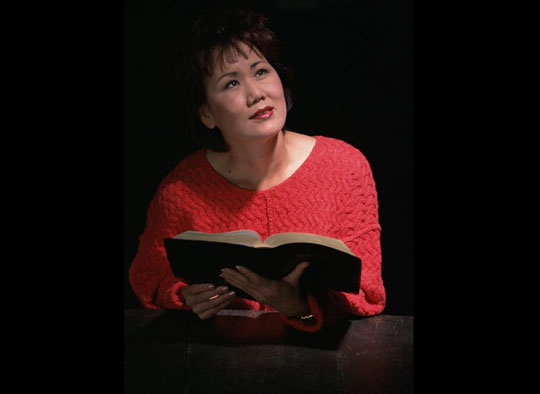
Welcome again to our online retreat, the Spirituality of the Catechist. For this week, our topic will be: A Coherence and Authenticity of Life.
Before we jump into today’s post, let’s recall the last few weeks, during which we’ve looked at the openness that we catechists are called to incorporate into our spirituality: an openness to God, to the Church, and to the world. If you haven’t already, share some thoughts about the retreat in the comments of any post in the series that inspires you in your vocation as a catechist. Thank you to all of you who are continuing to share your introductions too.
A Coherence and Authenticity of Life
Marketing experts tell us that, in today’s economy, consumers are craving authenticity. It seems that the more we experience things going on around us as virtual or contrived, the more we insist on experiencing something that is real—authentic. While still concerned about availability, quality, and cost, consumers are more concerned about authenticity: someone or something they can identify with.
Now, I’m not suggesting that faith is a commodity and that our students are consumers to whom we are trying to sell. However, as catechists, we do have a “brand” that we are striving to promote. We can learn a lesson from the world of marketing, which tells us that, put simply, authenticity is what results when there is a harmony between what one is and what one does. For us to be effective catechists, we must strive to be sure that there is no gap between who we are as human beings and what we do as catechists. When our lives reflect a harmony between the two, we telegraph a coherence—a consistency between what we say and how we act.
Those we teach are watching us closely for signs of authenticity and coherence of life (consistency). They are seeking a consistency between:
- our words in class and our actions outside of class. (Do we practice what we preach?)
- our words and our facial expressions and body language. (Do we look like we are proclaiming Good News?)
- the words we teach and the way we speak to and deal with them. (Do we preach love, patience, and forgiveness, and then speak or act harshly toward our students?)
Those we teach will see the Gospel as authentic if they experience us as authentic. This is what the Church had in mind when it said, in the General Directory for Catechesis, that, “No methodology, no matter how well tested, can dispense with the person of the catechist in every phase of the catechetical process.” (156)
To have an authenticity and a coherence of life is not to be confused with being perfect! In fact, paradoxically, the first step to articulating authenticity and coherence of life is to admit humbly that we are sinners. We have, at times, been inauthentic and inconsistent, and we earnestly seek forgiveness so that we may become more authentic followers of Jesus. In striving to present ourselves as authentic, we must avoid allowing ourselves to become like the Pharisee who prayed, “God, I thank you that I am not like other people: thieves, rogues, adulterers, or even like this tax collector. I fast twice a week; I give a tenth of all my income.” (Luke 18:11–12) To prevent our quest for authenticity and coherence of life from turning into self-righteousness, we must practice humility as did the tax collector who prayed, “God, be merciful to me, a sinner.” (Luke 18:13)
Likewise, we become more authentic by virtue of our engagement in ongoing formation through which we strive continually to conform ourselves to Jesus Christ, the ultimate example of authenticity and coherence of life. This is precisely why Jesus uttered the words, “It is finished,” before he died on the Cross. He was not uttering words of failure but of triumph: he had completed his mission of remaining authentically and coherently faithful to the Father’s will.
In the coming week, let’s pray for the grace we need to be authentic followers of Jesus who have a coherence of life, so that those we teach may recognize the Gospel as a viable path for their lives.
Week Five Reflection Questions
Over the next few days, ponder these reflection questions pertaining to this week’s theme. Then return here to Catechist’s Journey and share some of your reflections with your fellow retreatants.
- How important is authenticity to you when it comes to making a purchase or committing your time to something or someone?
- Who is/has been an example of authenticity and coherence of life (in terms of faith) for you?
- In what areas of your life are you experiencing tension between who you are and what you do?
- When it comes to being a catechist, do you feel a harmony between who you are and what you do? If not, what is causing the disharmony?
- When was a time that your authenticity showed through to those you were teaching?
- How can the Sacrament of Penance and Reconciliation help you to grow in authenticity and coherence of life?
- Who is an example of humility in your life? How can you emulate this person?
- What type of ongoing formation will you participate in this year to strive to conform yourself to Christ and to become a more authentic disciple of Jesus?
Spiritual Exercises

During the course of this week, practice one or more of the following spiritual exercises designed to deepen your coherence and authenticity of life. Share the fruits of your exercises with your fellow retreatants by posting your comments any time this week.
- During this week, practice what St. Ignatius of Loyola called the Daily Examen, a way to prayerfully review your day to see in what experiences you have been authentic and consistent as a follower of Jesus and in what experiences you have not. Take 10–20 minutes near the end of your day, and follow these simple steps:
- Quiet yourself and recall God’s presence.
- Review your day and give thanks for God’s gifts.
- Review your day again and identify those moments you were most authentic as a follower of Jesus Christ and those moments when you may have been inconsistent or inauthentic.
- Ask forgiveness for the times you were inconsistent or inauthentic.
- Ask for the grace you need to have an authenticity and coherence of life in the day to come.
- Pray the Jesus Prayer (also called the Prayer of the Heart) to begin each day and at various times throughout your days as a way of asking God for the grace of humility: Lord Jesus Christ, Son of God, have mercy on me, a sinner. When praying this prayer, synchronize it with your breathing. Breathe in while calling out to God (Lord Jesus Christ, Son of God) and breathe out while praying for mercy (have mercy on me, a sinner). Repeat the prayer as often as you like over a period of five minutes, praying it slowly, and pausing between each recitation.
- Do an Examination of Conscience in preparation for receiving the Sacrament of Penance and Reconciliation. Choose an opportunity to go to confession in the days or weeks ahead.
Recommended Reading on the Topic of Coherence and Authenticity of Life
Heroic Living by Chris Lowney
A Simple, Life-Changing Prayer by Jim Manney
Here’s My Heart, Here’s My Hand by William A. Barry, SJ
The Catechist’s Backpack by Joe Paprocki and Julianne Stanz
Living the Mass by Fr. Dominic Grassi and Joe Paprocki
Remember you can share your thoughts in the comments at any time. Come back on Thursday to read Jayne Mondoy’s reflection on our topic of coherence and authenticity of life.




I struggle with being authentic more often than I would like. I come from a family of former Catholics who have little regard for the Church and tend to be distrustful of “religious people”. They know that I regularly attend mass with my husband; but they have no idea how central my faith is to me. If I were to tell them that I am a catechist, it would make them very uncomfortable and likely would put a strain on my relationship with them. That’s just the way my family is. I know I walk a fine line between honoring my father and mother and outright denial of my Savior. It’s very difficult for me.
Yes, Being yourself all the time is the only way to be. One must remember that the students will see you in the grocery, driving on the road, and in other public places. How do we proclaim the Gospel by our lives. We must be like Jesus all the time. As someone put it; it must be part of our DNA.
I was really struck by the humanity of Jesus in his final words “It is finished.” from this reflection. It was a whole new insight to think of his relief that he had made it through his life and through temptations and was able to follow the will of the Father. Wow! Thanks for that insight.
The first question about authenticity in purchases and commitments made me pause. I’m usually not concerned about authenticity in purchases; I tend to purchase whatever is available or on sale without thinking about where the item came from. My time, however, is valuable to me, and I tend to be protective of it; therefore I often think about the most important ways to spend my time and try to plan my days accordingly. The flip side is that I sometimes then feel conflicted trying to balance important commitments.